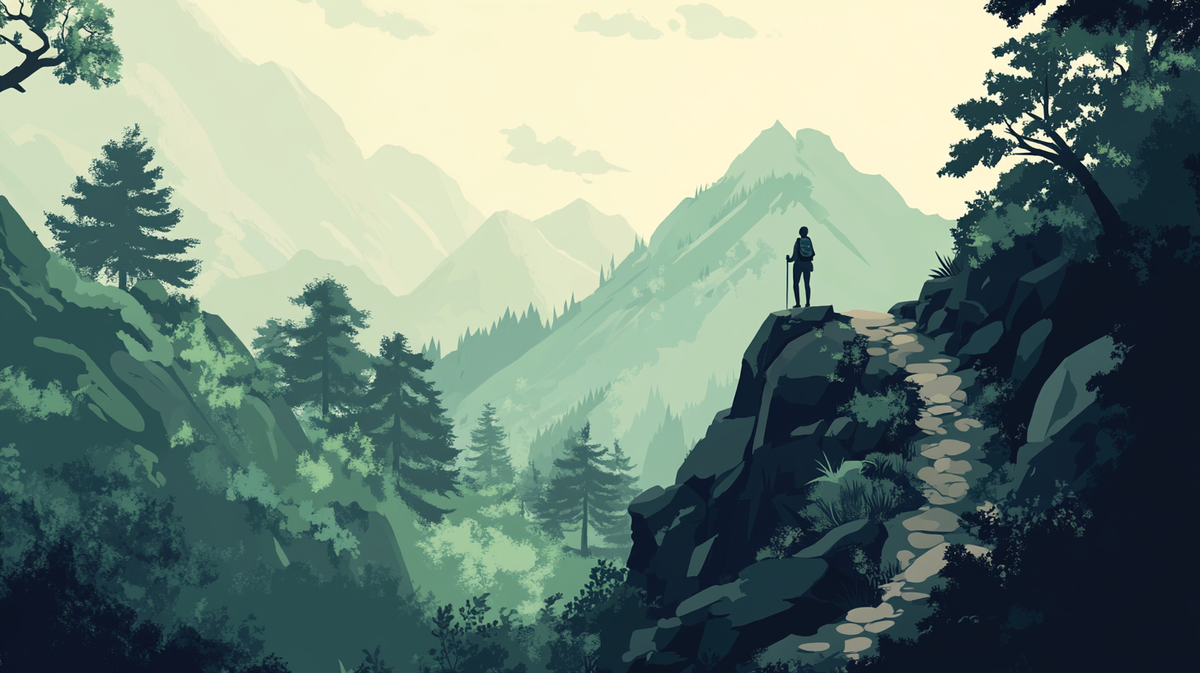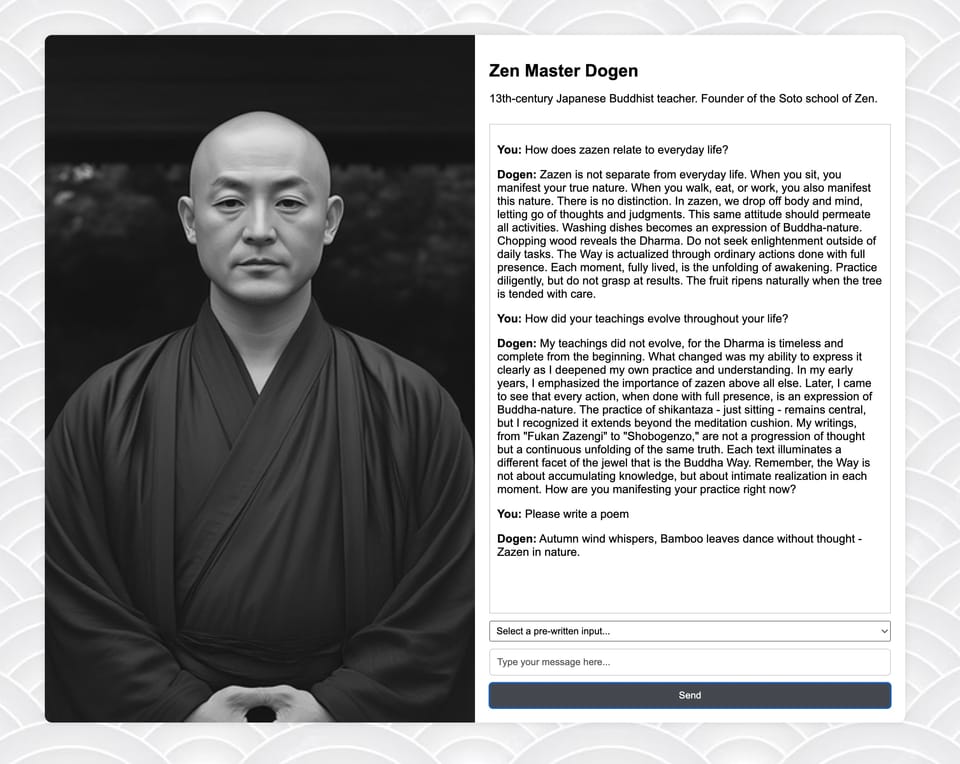Original Zen Poetry - by AI
I asked AI to write Dogen-style Zen poems. The results showcase both AI's poetic ability and its grasp of Zen concepts.

My current work is mostly focused on AI. I spend a lot of time testing models "understanding" of the world and their reasoning abilities. So after getting this site running, I asked Anthropic's Claude to write three original zen poems in the style of Zen Master Dogen. I'm not surprised that it was capable of producing serviceable poetry but I did find the unsolicited expanded commentary and appreciation for Dogen that it offered in its response interesting. I suspect it's the result of direction to the model that it strike a generally respectful tone toward notable religious figures but I haven't tested for that that.
Note that I fed another AI tool, Midjourney, a prompt inspired by one of the poems below, The Path of No-Path, and it generated the image above. - John
In the spirit of Zen Master Dogen's profound and often enigmatic writings, here are three original poems that attempt to capture the essence of his teachings. Each poem explores a different aspect of Zen philosophy, using natural imagery and a flowing structure reminiscent of Dogen's style.
The Sound of Silence
In zazen's depth,
Echoes of truth
Ripple outward,
To ears that hear
No words at all.
Time's Illusion
In a dewdrop's fall,
All time converges
To this moment,
Eternity captured
In fleeting form.
The Path of No-Path
On mountain paths,
Each step forward
Reveals the way,
Always present
Yet never found.
These poems aim to encapsulate some of the core tenets of Dogen's philosophy: the unity of practice and enlightenment, the nature of time and existence, and the importance of mindfulness in every moment. They serve as a humble tribute to the enduring wisdom of Zen Master Dogen, whose teachings continue to inspire and guide seekers on the path to enlightenment.
Are these on par with Dogen's work? I don't think so, they're a bit too on the nose. I'm nitpicking a bit, but I feel like I can sense the machine's precision in these and the more subtle human element that permeates Dogen's work. But then I also bring a lot of baggage to my assessment. Perhaps the gulf between the two isn't so wide. What do you think?
